
The Fall were an English post-punk group, formed in 1976 in Prestwich, Greater Manchester. They underwent many line-up changes, with vocalist and founder Mark E. Smith as the only constant member. The Fall's long-term musicians included drummers Paul Hanley, Simon Wolstencroft and Karl Burns; guitarists Craig Scanlon, Marc Riley, and Brix Smith; and bassist Steve Hanley, whose melodic, circular bass lines are widely credited with shaping the band's sound from early 1980s albums such as Hex Enduction Hour to the late 1990s.

Mark Edward Smith was an English singer-songwriter. He was the lead singer, lyricist and only constant member of the post-punk group the Fall. Smith formed the band after attending the June 1976 Sex Pistols gig at the Lesser Free Trade Hall in Manchester and was its leader until his death. During their 42-year existence, the Fall's line-up included some sixty musicians, with whom Smith released 32 studio albums and numerous singles and EPs.

This Nation's Saving Grace is the eighth studio album by the English post-punk band the Fall, released in 1985 by Beggars Banquet. In contrast to the band's earlier albums, This Nation's... is noted for its pop sensibilities and guitar hooks, and John Leckie's accessible production. This Nation's... was recorded in London between June and July 1985, and is the second of the three consecutive Fall albums produced by John Leckie. The album was accompanied by the singles "Couldn't Get Ahead" and "Cruiser's Creek", and tours of Europe and America.
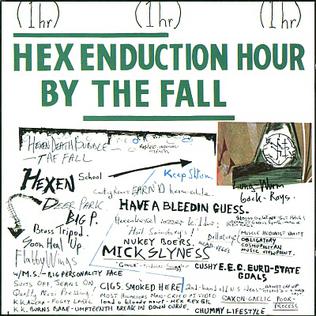
Hex Enduction Hour is the fourth studio album by the English post-punk group the Fall. Released on 8 March 1982, it was built on low-fidelity production values and caustic lyrical content of their earlier recordings, and features a two-drummer lineup. Frontman Mark E. Smith established an abrasive Northern aesthetic built as part of the 20th century literary traditions of kitchen sink realism and magic realism. Smith described the album as an often-satirical but deliberate reaction to the contemporary music scene, a stand against "bland bastards like Elvis Costello and Spandau Ballet ... [and] all that shit."

Perverted by Language is the sixth studio album by English post-punk group The Fall, released in December 1983 on Rough Trade Records.

Brix Smith is an American singer and guitarist, best known as the lead guitarist and a major songwriter for the English post-punk band the Fall during two stints in the band.

The Wonderful and Frightening World Of... is the seventh studio album by English musical group the Fall, released in October 1984. It was the band's first album after signing to the Beggars Banquet label. Newcomer Brix Smith co-wrote three of the tracks, ushering in a relatively pop-oriented sound for the group. Paul Hanley left the band immediately after the accompanying UK tour, ending the group's distinctive "twin drummers" period.

The Frenz Experiment is the tenth studio album by English post-punk band The Fall. It was released on 29 February 1988 through record label Beggars Banquet. In October 2020, an expanded remastered edition was produced, containing singles, b-sides and other tracks recorded in the same era.
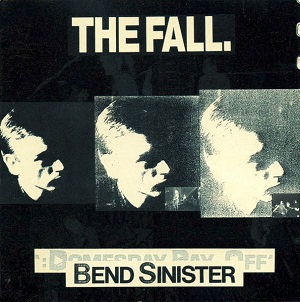
Bend Sinister is the ninth studio album by English post-punk band the Fall. It was released in September 1986 by record label Beggars Banquet.
Karl Burns is a British musician best known as the drummer for the Fall, featuring in many incarnations of the band between 1977 and 1998.

Extricate is the 12th album by post-punk band the Fall. It was made immediately after bandleader Mark E. Smith divorced guitarist Brix Smith. Brix's departure helped define the sound of this album: her background vocals and relatively pop-oriented guitar, which had become mainstays of The Fall, are noticeably absent in this release. In one of the more unusual events in the group's career, she was replaced by founding former member Martin Bramah, who had previously left the group in 1979 to form his own group Blue Orchids.

The Light User Syndrome is the 18th album by the Fall, released in 1996 on Jet Records. It was the group's first album to feature keyboard player and guitarist Julia Nagle and the last to feature Brix Smith, while longtime guitarist Craig Scanlon was fired in late 1995 during troubled recording sessions for "The Chiselers" single which preceded the album. A version of "The Chiselers" is included on the album as "Interlude/Chilinism".
The Adult Net were a British indie pop band formed by British-based American singer and guitarist Brix Smith in 1984, while she was a member of The Fall.
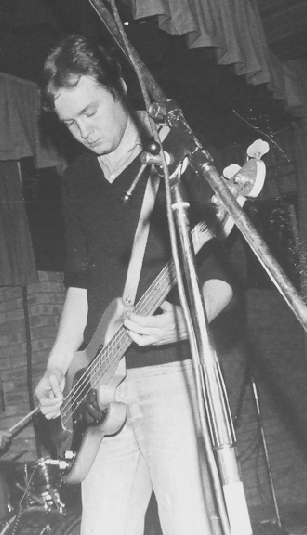
Stephen Hanley is an Irish-born English musician best known as the bass guitarist in the Fall from 1979 to 1998. His distinctive and muscular basslines were a signature part of their sound, often carrying the songs' instrumental melodies. Hanley is second only to Mark E. Smith in longevity in the band. With Peter Hook, Andy Rourke and Gary Mounfield, he is widely considered one of the pre-eminent Manchester bassists of his generation. He has always been very private and rarely interviewed; for this reason his 2014 autobiography The Big Midweek: Life Inside The Fall was highly anticipated. On publication it was met with widespread acclaim for its frank honesty and dry, no nonsense humour.
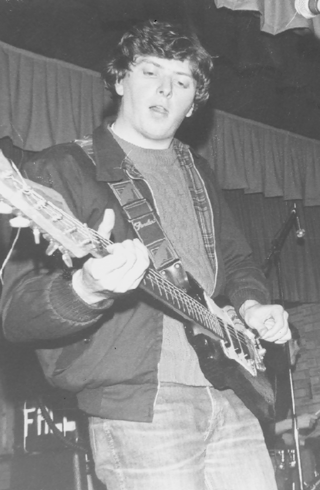
Craig Antony Scanlon is an English guitarist, best known as a member of the Fall between 1979 and 1995. During his tenure he was a stalwart member for 17 albums and co-wrote over 120 of the group's songs; singer Mark E. Smith and bass player Steve Hanley excepted, this tally is unmatched by any other musician to have passed through the group.
Martin Beddington, better known by his stage name Martin Bramah, is an English singer-songwriter and guitarist, best known as a founding member of the Fall, Blue Orchids, Thirst, and Factory Star.
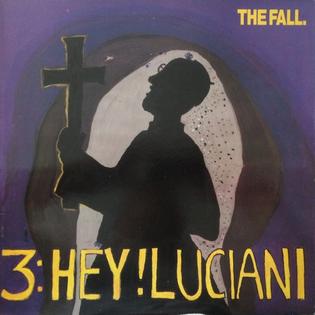
"Hey! Luciani" is a song by British post-punk band the Fall, written by Mark E. Smith with his then-wife Brix Smith and longstanding band member Steve Hanley. Released in December 1986, the record reached number 59 on the UK singles chart, the band's first original song to make the top 75 of the chart. The song was written as part of Smith's play, Hey! Luciani: The Life and Codex of John Paul I, concerning conspiracy theories about the 1978 death of the Pope, which was performed for two weeks in London and starred Leigh Bowery.
"I Am Damo Suzuki" is a song by the English post-punk band The Fall released on their 1985 album This Nation's Saving Grace. It was written in tribute to the Japanese expat vocalist Damo Suzuki of the Krautrock group Can, whom Fall vocalist Mark E. Smith consistently described as a major influence.
"Paint Work" is a 1985 song by the English Post-punk band The Fall that first appeared on their album This Nation's Saving Grace. Widely considered the high-point of the album, the track was described in 2019 as "absolutely sublime" by Vulture, and as "mildly psychedelic" in 2011 by critic Mick Middles.














